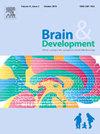日本儿科神经学家关于发育迟缓/智力残疾患者基因检测的决定:一项全国性调查
IF 1.3
4区 医学
Q4 CLINICAL NEUROLOGY
引用次数: 0
摘要
遗传分析技术的进步增加了发育迟缓/智力残疾(DD/ID)病例获得基因诊断的机会。然而,进行基因检测的决定取决于医生的决定;此外,基因检测的可及性因国家或地区而异。方法日本儿科神经科医师于2023年2 - 3月参与了一项在线调查,以评估他们对DD/ID基因检测的态度。结果该研究招募了266名儿科神经学家,其中包括41名经过认证的临床遗传学家。在日本,g带是DD/ID最常见的一线基因检测。对于没有身体和行为异常的DD/ID, 30%的儿科神经科医生表示他们不会进行基因检测,而临床遗传学家的这一比例为15%。75.6%的注册临床遗传学家报告有提交染色体微阵列分析(CMA)的经历,而只有39.2%的儿科神经科医生有提交CMA的经历。结论DD/ID患者基因检测适应证的决定差异受专业基因培训的影响。提高教育水平和接触基因专家可能有助于日本基因诊断的标准化。另一方面,需要一项标准化的检测政策,特别是针对非遗传专家,以使DD/ID的基因检测更加广泛。本文章由计算机程序翻译,如有差异,请以英文原文为准。
Japanese pediatric neurologist's decision regarding genetic testing for patients with developmental delay/intellectual disability: A nationwide survey
Background
Advances in genetic analysis technology are increasing the opportunities for developmental delay/intellectual disability (DD/ID) cases to reach genetic diagnosis. However, the decision to perform genetic testing depends on the physician's decision; furthermore, the accessibility of genetic testing varies by country or region.
Methods
Japanese certified pediatric neurologists participated in an online survey from February to March 2023 to assess their attitudes toward genetic testing for DD/ID.
Results
The study enrolled 266 pediatric neurologists, including 41 certified clinical geneticists. In Japan, G-banding emerged as the most common first-line genetic testing for DD/ID. For DD/ID without physical and behavioral abnormalities, 30 % of pediatric neurologists indicated that they would not perform genetic testing compared with 15 % of clinical geneticists. 75.6 % of certified clinical geneticists reported experience submitting chromosomal microarray analysis (CMA), while only 39.2 % of pediatric neurologists had experience submitting CMA.
Conclusion
Differences in the decision of indication for genetic testing for DD/ID cases were shown to be influenced by specialized genetic training. Improved education and access to genetic specialists may help standardize genetic diagnosis in Japan. On the other hand, a standardized testing policy, especially for non-genetic specialists, is needed to make genetic testing for DD/ID more widely available.
求助全文
通过发布文献求助,成功后即可免费获取论文全文。
去求助
来源期刊

Brain & Development
医学-临床神经学
CiteScore
3.60
自引率
0.00%
发文量
153
审稿时长
50 days
期刊介绍:
Brain and Development (ISSN 0387-7604) is the Official Journal of the Japanese Society of Child Neurology, and is aimed to promote clinical child neurology and developmental neuroscience.
The journal is devoted to publishing Review Articles, Full Length Original Papers, Case Reports and Letters to the Editor in the field of Child Neurology and related sciences. Proceedings of meetings, and professional announcements will be published at the Editor''s discretion. Letters concerning articles published in Brain and Development and other relevant issues are also welcome.
 求助内容:
求助内容: 应助结果提醒方式:
应助结果提醒方式:


